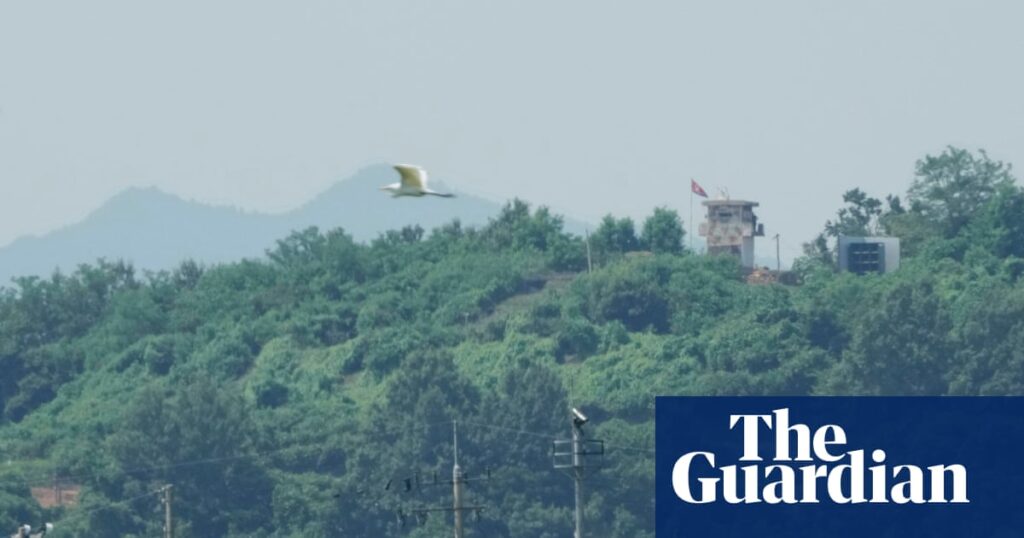South Korea fired warning shots at North Korean soldiers who briefly crossed the heavily fortified border earlier this week, Seoul said on Saturday, after Pyongyang accused it of a “deliberate provocation” that risks “uncontrollable” tensions.
South Korea’s new leader Lee Jae Myung has sought warmer ties with the nuclear-armed North and vowed to build “military trust”, but Pyongyang has said it has no interest in improving relations with Seoul.
Seoul’s military said several North Korean soldiers crossed the border on Tuesday while working in the heavily mined Demilitarized Zone (DMZ) separating the two Koreas.
The incursion prompted “our military to fire warning shots”, Seoul’s Joint Chiefs of Staff said in a statement, adding “the North Korean soldiers then moved north” of the de facto border.
Pyongyang’s state media said earlier on Saturday that the incident occurred as North Korean soldiers worked to permanently seal the frontier dividing the peninsula, citing a statement by Lt Gen Ko Jong Chol.
Calling the event a “premeditated and deliberate provocation”, Ko said Seoul’s military used a machine gun to fire more than 10 warning shots towards the North’s troops, according to the official Korean Central News Agency.
“This is a very serious prelude that would inevitably drive the situation in the southern border area where a huge number of forces are stationing in confrontation with each other to the uncontrollable phase,” Ko said.
The last border confrontation between the arch-rivals was in early April when South Korea’s military fired warning shots after about 10 North Korean soldiers briefly crossed the frontier.
North Korea’s military announced last October it was moving to totally shut off the southern border, saying it had sent a message to US forces to “prevent any misjudgment and accidental conflict”.
Shortly after, it blew up sections of the unused but deeply symbolic roads and railroad tracks that connect the North to the South.
Ko warned that North Korea’s army would retaliate against any interference with its efforts to permanently seal the border.
Under Lee’s more hawkish predecessor, relations between the two Koreas had sunk to one of their lowest points in years.
After Lee’s election in June, he pledged to pursue dialogue with the nuclear-armed North without preconditions, saying last week that his government “will take consistent measures to substantially reduce tensions and restore trust”.
Even so, South Korea and the US began annual joint exercises on Monday aimed at preparing for potential threats from the North.
Lee described the drills as “defensive” and said they were “not intended to heighten tensions”.
North Korea – which attacked its neighbour in 1950, triggering the Korean war – has long been infuriated by such exercises between the US and the South, decrying them as rehearsals for invasion.
Pyongyang’s leader Kim called earlier this week for the “rapid expansion” of the North’s nuclear weapons capability, citing the ongoing US-South Korean military exercises that he claimed could “ignite a war”.
His powerful sister has since said Seoul “cannot be a diplomatic partner” of the North, and that Lee “is not the sort of man who will change the course of history”.


